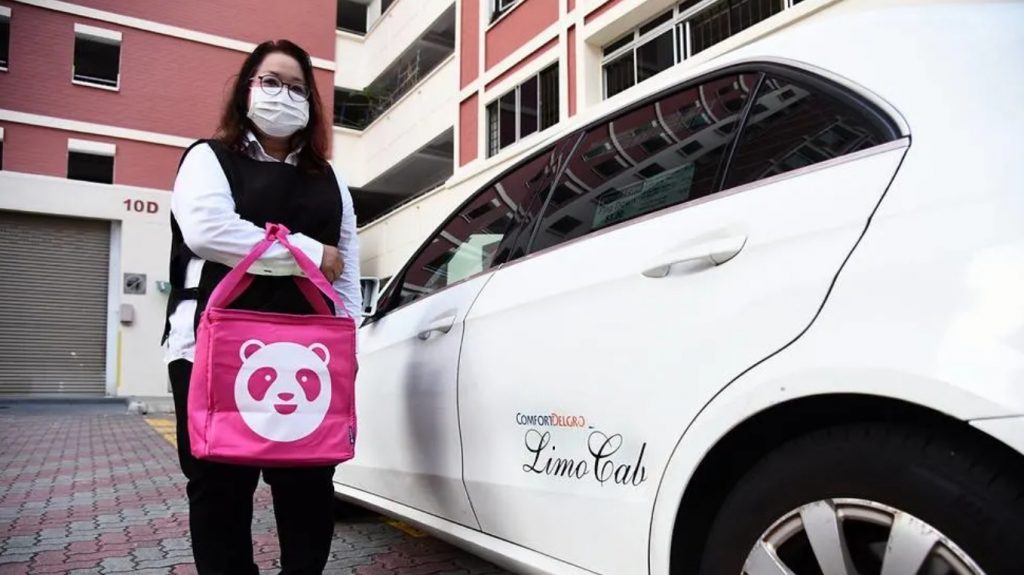Singapore – About six years ago, Ramalingam Kulanthivel turned to driving a taxi after he was laid off from his job in the manufacturing line.
Being a cabby suits him, he said, as he appreciates the freedom that comes with being able to drive when he wanted.
“You’re like your own boss,” the 62-year-old told CNA.
But when the COVID-19 outbreak hit, Mr Ramalingam – like many other taxi drivers – had his income affected. His earnings fell more than 70 per cent.
Singapore’s taxi sector has taken a massive hit due to the COVID-19 pandemic, as more people stay home due to the “circuit breaker” period. Schools and most workplaces are closed, and there has been a steep drop in tourist numbers following travel restrictions worldwide.
About S$200 million in support – provided by both the Government as well as taxi and ride-hailing companies – has been set aside to help taxi and private-hire car drivers affected by the COVID-19 outbreak this year.
Following a recommendation from ComfortDelGro, Mr Ramalingam now splits his time between driving and being a transport ambassador at the Punggol LRT line. The light rail line is run by public transport operator SBS Transit, a subsidiary of ComfortDelGro Corp.
As a transport ambassador, Mr Ramalingam ensures that commuters maintain safe distancing, standing at least 1m away from each other. These ambassadors also take on other responsibilities like helping to sanitise train cabins and seats.
Twenty taxi drivers have joined the transport ambassador scheme, according to the Land Transport Authority.
During peak hours, Mr Ramalingam travels from station to station on the 14-station LRT line, ensuring that commuters adhere to the requirements. During off-peak hours, he is positioned outside the fare gates of a particular station to remind passengers of safe distancing.
Being a transport ambassador is not all that different from driving a taxi, Mr Ramalingam said, explaining that as a cabby, he used to be able to drive up to 25 passengers a day, sometimes having to handle those who were difficult or drunk.
“You have to be tactful, I would say. Be tactful, be nice to them. Generally people will listen,” he said.
He continues to drive a taxi although passengers are now few and far between.
“Now it’s more deliveries than passengers. You hardly get more than one passenger a day,” he said.
Other cabbies have turned to making deliveries, after it was announced in March that taxi and private-hire car drivers would be allowed to make food and grocery deliveries due to a spike in demand for such services and reduced demand for point-to-point transport.
More than 1,000 taxi drivers have taken on such jobs.
ComfortDelGro has been “working tirelessly” to offer affected cabbies alternative job options, said the company’s group chief corporate communications officer Tammy Tan.
“To date, more than 680 of our cabbies have been deployed to take on these alternative jobs, with close to 110 cabbies deployed to provide delivery services for our partners such as KFC, Pizza Hut and Foodpanda. We are still in the midst of working out operational details with other partners and will keep our cabbies posted once these have been sorted out,” she said.
ComfortDelGro, which has more than 10,000 taxis, had also announced on Apr 29 its own food delivery service called ComfortDelivery.
Mr Tony Heng, senior vice-president of SMRT Road Holdings, which is responsible for the transport operator’s taxi business, said it currently has about 400 drivers supporting its food and beverage partners.
He noted that other eateries have also expressed interest in collaborating with the company, adding that SMRT is recruiting more drivers to take part in the initiative.
“Aside from our existing F&B partners, we are also working with community initiatives such as Project Makan to have our Strides drivers deliver food to needy families,” he added, referring to SMRT’s private-hire car rental venture.
Both SMRT and ComfortDelGro have also waived taxi rentals for their drivers during Singapore’s circuit breaker period. The two companies, which also run public buses in Singapore, have indicated that affected taxi drivers could also consider becoming bus drivers.

Evelyn Lam, a driver with ComfortDelGro’s limousine service, now also does food deliveries for Foodpanda.
Deliveries were initially limited to three hours during the lunchtime peak period, but she is now putting in four to five hours a day during the Muslim fasting month of Ramadan to serve customers breaking fast.
Madam Lam, 61, still takes passengers, although she said she often has to wait up to two or three hours just to get a single passenger.
Food deliveries pose their own challenges compared to ferrying passengers, she noted.
“If you do food delivery, you have to find the block number, apartment number and you have to find the unit number of the food stall. It’s very time-consuming,” she said.
Both Mdm Lam and Mr Ramalingam said they look forward to going back to full-time taxi driving once the coronavirus situation improves, although Mdm Lam noted that she may continue doing food deliveries if the money is good.
For now, they are doing what they can to get by.
Even with income from both his work as a transport ambassador and a driver, Mr Ramalingam said his earnings are not as much as what they were before the COVID-19 pandemic.
“You just hope for the best to come about. (The income) is not as good but at least (you get to) keep yourself going. At least you have an excuse to get out of the house, to go and do something,” he said.
Follow us on our Facebook and Twitter pages for the latest stories, products & updates.
– Source: Zhaki Abdullah – channelnewsasia.com




















